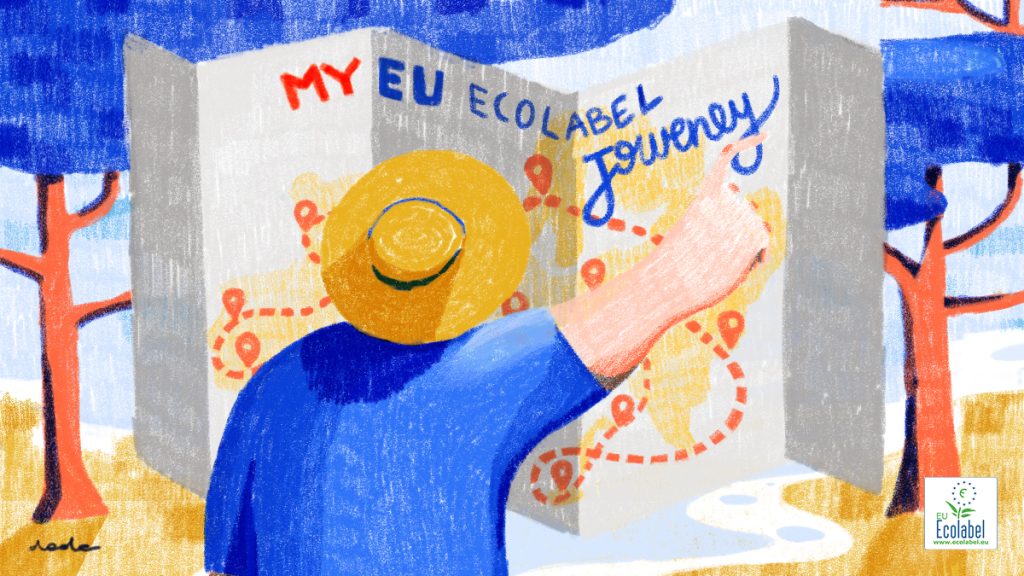Temperatures are (literally) rising and people are leaving for their holidays – at least here in Brussels. With summer at our doorstep, we have gathered five tips that can help you organise a more sustainable summer holiday.
Where to go
The first choice when it comes to holidays is usually the destination. While it may be tempting to look for exotic places overseas, there are plenty of exciting destinations in Europe. By choosing a European destination, you not only explore your home continent, but it may also be possible to avoid flying and its associated carbon emissions.
How to get there
Train travel is back in fashion, with night trains making a comeback and operators offering new routes across the continent. Rail journeys can be part of the adventure of travelling and avoiding the stress of airports. We know, things are not always perfect (but is it for planes?), and finding the right tickets or connections requires some intellectual gymnastics. That’s why BEUC is working hard to make it even easier!
Rail journeys can be part of the adventure of travelling
Another alternative to consider is an electric car. If you don’t have one yourself, many hire companies offer these as part of their fleets. You might be surprised: there is already an extensive network of car charging infrastructure throughout Europe- even if it could be much simpler to pay by card or to get a clear overview of charging prices.
Where to stay for a sustainable summer holiday
Once the destination and travel are set, there is another choice to make: where to stay. Here you can also opt for greener places which try to improve e.g. their energy, water and waste management.
One easy way to find those places is to look for trustworthy sustainability labels. The EU Ecolabel, for example, is available across Europe, from campsites to high-end hotels.
The certification guarantees that the accommodation is taking steps to reduce its environmental footprint. This map shows the location of certified hotels across Europe.

During your holidays
Small actions also help to make your holiday greener. One tip is to choose your sun cream wisely as some ingredients are harmful for human health and the environment. Generally, we recommend looking for cosmetic products that are certified with a reliable label, like the EU Ecolabel. Besides, you will find plenty of advice from consumer organisations on this topic, from a detailed sun cream FAQ, to which substances to avoid, and the importance of applying sun cream generously and frequently.
Another easy one is to bring your own drinking bottle. In many countries, it’s safe to drink water from the tap. Bringing your own bottle and refilling it throughout the day saves you money, and spares plastic waste. And talking about plastic bottles…
Stay clear of greenwashing and dark patterns
Greenwashing is very common. Only 3% in our recent survey said they would be able to distinguish false from trustworthy green claims. That’s why we’re working at European level to ensure strong rules to protect consumers from greenwashing.
When looking to stay hydrated on your sustainable summer holiday, you might spot that many single-use bottles claim to be made of 100% recycled content, but this is hardly ever true. Usually, only parts of the bottle are recycled, and often the recycled content consists of leftover virgin plastic from other industrial processes, not of recycled plastic bottles. Claims to be “recyclable” can also lead you to overestimate how green the bottle is. That’s because the claim alone doesn’t mean the bottle is actually recycled.
Greenwashing is very common
It might also be tempting to take the plane after all, since airlines’ marketing makes us believe that flying can be a sustainable option and that their operations are carbon neutral, or greener thanks to sustainable aviation fuels. However, our analysis shows that is simply not true and that greenwashing is rife among airlines, despite our complaint against leading companies for misleading green claims two years previously.

Above: the ‘dark side’ of fast fashion companies, which often use dark patterns to push consumers to buy ever more
Our last word of caution: your wardrobe probably has enough clothes in it already. With plenty of advertisements telling us we could get the latest summer trend for €8.99, it would be easy to go for another shirt or dress.
But there is a dark side to fast fashion giants like SHEIN, Temu & Co. The industry deploys ‘dark patterns’ which it uses heavily to push consumers to buy ever more. This harms consumers financially, fuels the circulation of unsafe clothing across Europe, damages the environment (e.g. by creating huge volumes of textile waste), and disempowers consumers in their efforts towards the green transition.
We hope that these tips are useful to stay cool and green on holiday this year while keeping clear of false marketing.
Have a nice summer!

